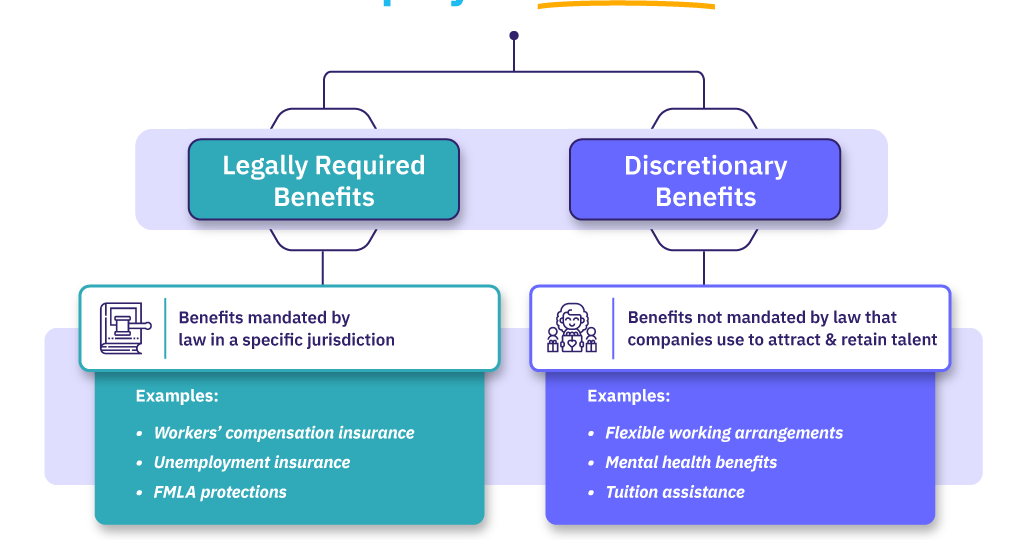
Employee Benefits Management and Consultation
Employee benefits play a crucial role in attracting and retaining top talent. They serve as a powerful tool for organizations to enhance employee satisfaction, motivation, and overall well-being. However, managing these benefits can be complex and time-consuming. This is where employee benefits management and consultation services come into play. In this article, we will explore the significance of employee benefits management and how it can help businesses navigate the intricate landscape of employee benefits effectively.
The Importance of Employee Benefits
Offering a comprehensive and enticing benefits package is essential for businesses to attract and retain skilled employees. Not only do employee benefits contribute to job satisfaction, but they also enhance employee loyalty and commitment to the organization. Some of the key benefits include healthcare coverage, retirement plans, paid time off, flexible work arrangements, wellness programs, and various other perks. A well-designed benefits program demonstrates that a company values its employees' welfare and recognizes their contribution to the organization's success. This plays a vital role in building a positive organizational culture and can differentiate a company from its competitors in the talent market.
The Challenges of Managing Employee Benefits
While offering robust employee benefits is essential, managing them can be complex and require specialized knowledge. Without proper management, organizations may face various challenges, such as administrative errors, compliance issues, and escalating costs. Benefit programs involve intricate legal requirements, including tax regulations, benefit plan design, and compliance with government mandates like the Affordable Care Act. Staying up to date with these regulations can be overwhelming for employers who may not have the necessary expertise or resources. Additionally, managing enrollment, maintaining accurate records, and handling employee inquiries can be burdensome, especially for companies with a large workforce. Furthermore, the benefits landscape is continually evolving, with new trends and technologies emerging. It can be challenging for employers to stay abreast of these changes and ensure their benefits programs remain competitive and relevant.
The Role of Employee Benefits Management and Consultation
Employee benefits management and consultation services provide comprehensive solutions to help organizations effectively navigate the realm of employee benefits. These services are typically offered by professional firms specializing in benefits administration, human resources, and compliance.
Plan Design
Benefits consultants can assist businesses in designing tailored benefit plans that align with their goals and budget. They analyze the workforce demographics, industry benchmarks, and regulatory requirements to create a benefits package that is attractive, competitive, and compliant.
Administration and Compliance
Employee benefits management services streamline the administrative processes associated with benefits, including enrollment, eligibility management, and record-keeping. These services often utilize advanced software systems that automate repetitive tasks, ensuring accuracy and efficiency. Additionally, benefits consultants can navigate the complexities of compliance regulations, keeping the organization updated and minimizing the risk of penalties or legal issues.
Communication and Employee Support
Effective communication is crucial when it comes to employee benefits. Benefits consultants can develop comprehensive communication strategies to educate employees about their benefits and assist them in making informed decisions. They can also handle employee inquiries, resolving issues promptly and providing personalized support.
Cost Management
Employee benefits management services help organizations maintain control over their benefit costs. The consultants analyze data, identify cost drivers, and recommend cost-effective solutions without compromising the quality of benefits. This proactive cost management approach ensures that the benefits program remains sustainable and aligned with the organization's financial objectives.
Conclusion
Employee benefits management and consultation are crucial for businesses to effectively design, implement, and manage their benefits programs. By leveraging the expertise of benefits consultants, organizations can navigate the complexities of employee benefits while ensuring compliance, cost efficiency, and employee satisfaction. Investing in such services can have a significant impact on attracting and retaining top talent, ultimately contributing to the overall success of the organization.